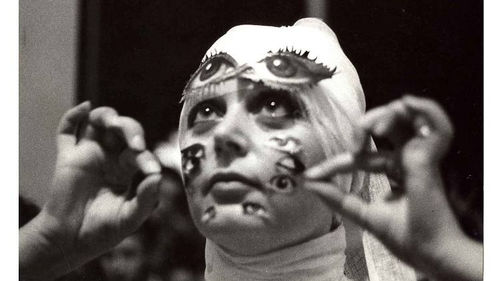Tomaso Binga (b.1931), whose solo exhibition 'Poesia Muta' is currently on display at Brigade, shares her thoughts on her first solo exhibition in Scandinavia, the role of language in her works, and her biggest dream...
What were the biggest differences in the way you approached 'Poesia Muta' as opposed to previous exhibitions? I was very moved by Brigade's invitation to exhibit in Copenhagen. When I received it at the beginning of this year, I became aware that my name has crossed the Alps towards a country where I had never exhibited my work, moreover with a solo show! The post-pandemic period also had its weight in creating a completely new experience for me; finally, the fragility caused by my age, forced me to decide to not be present in person at the vernissage. Fortunately, technology has come to help us; this also produced an unprecedented experience, a live stream with a remote performance in real-time with the help of the excellent performer; Sophia Luna Portra.
What does it mean to exhibit in Scandinavia for the first time? It gave me the great joy of getting to know a new audience, characterized by a very open and avant-garde culture in regards to the themes of language, art, and gender equality. Thanks to the sensitivity and curiosity of Brigade's artistic director, Michael Bank Christoffersen, I was able to exhibit both historical and more recent works and therefore offer a very broad perspective of my artistic research.
How has the relationship between Bianca Menna and Tomaso Binga changed since 1976? Getting a male alter ego has created more problems than the actual marriage itself. At first, some feminists especially objected to this choice; then, over time, the meaning and what this 'marriage' with myself wanted to represent for me was better understood. For the rest, we are aging well together!
Why is language so important to you? Because I consider language the most ancient and sublime expressive form that exists, a conquest of the human being that is at the same time a miracle of intelligence, of the refined ability with which our brain pushes us towards new, elaborate adaptations of possibility to communicate.
Could you tell us a little bit about the bowls of herbs in this exhibition? When I created the Alfabetiere Officinale I thought it would be interesting to make the fruition of this work also a multisensory experience. Each letter of the alphabet refers to a medicinal plant that heals the body, sometimes even with its perfume alone; then, for the more 'fragrant' ones we have chosen to give the opportunity to immerse yourself in this path also through the sense of smell.
What advice would you give to future generations of artists interested in the relationship between gender and language? I observe that each generation has its own language and that somehow shapes reality. Today we are faced with a 'genderfluid' society which, unlike what happened to the youth of my generation, also admits 'something else' from the simple male / female dualism. Perhaps, ultimately, it is that 'neutral' element that the Italian language has lost compared to Latin, and that instead, the Anglo-Saxon languages retain, that remains the most fertile linguistic territory in which to continue experimenting.
What is your biggest ambition? I have never been ambitious ... More than ambition I would speak of a dream; in this case, the biggest one is that my works can survive me to be an inspiration, to continue to feed in people those transgressive and ironic imaginaries that I have tried to express throughout my life as an artist.
29 October 2021


